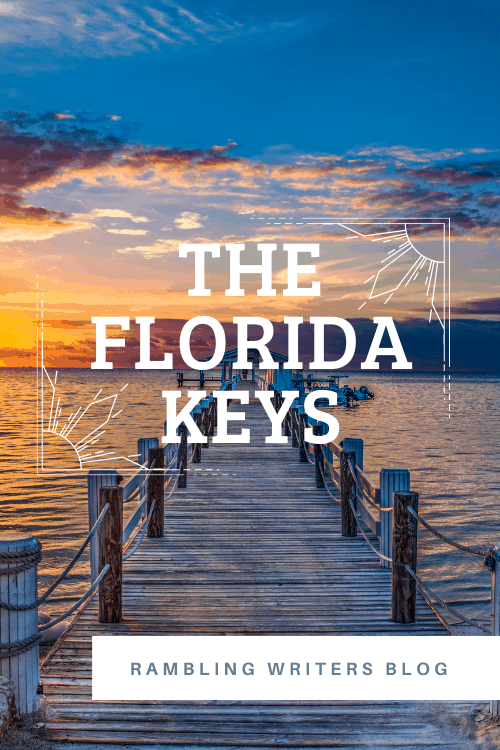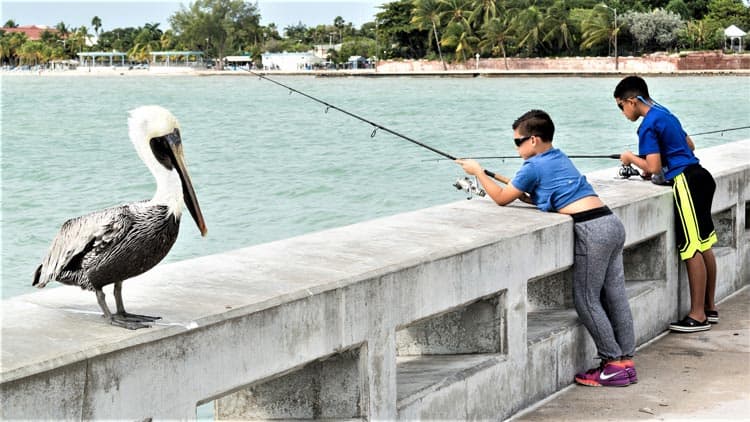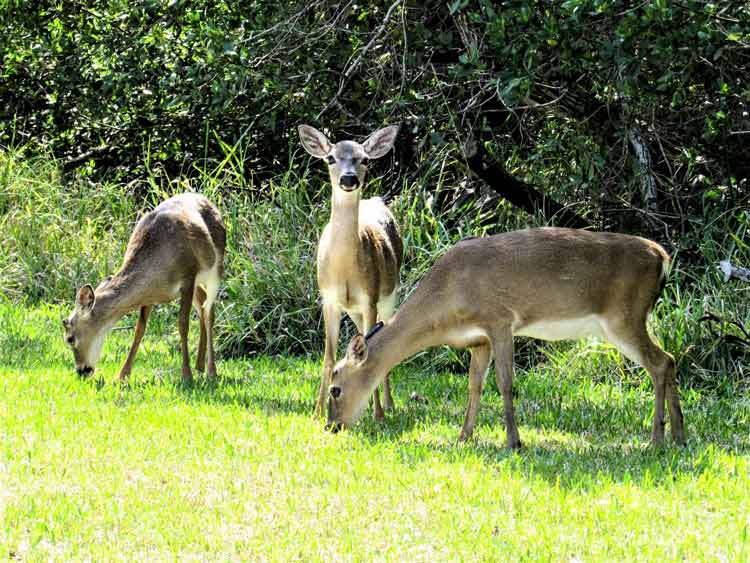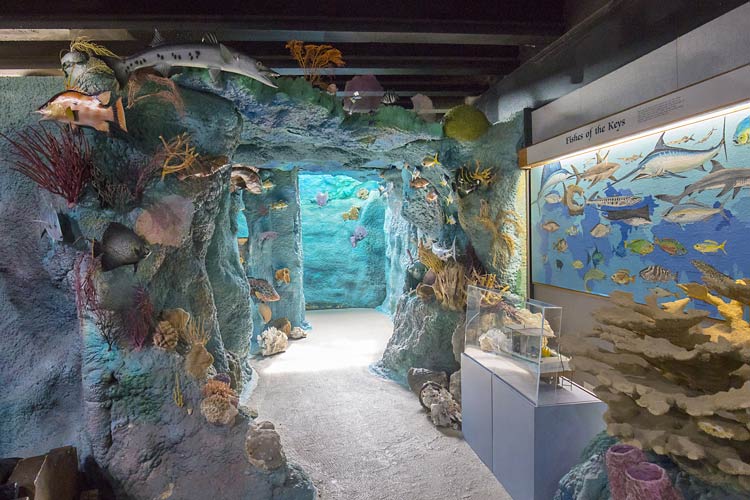
We are reader-supported and may earn a commission on purchases made through links in this article.
One afternoon while visiting the Florida Keys I photographed my wife, Fyllis swimming with stingrays and other denizens of the sea in a huge tank of water, then shoving live fish through an opening in a plexiglass wall to feed hungry sharks on the other side.
Driving back to our temporary home away from home, we passed houses fronted by mailboxes shaped like dolphins, manatees and sea horses.

Mother Nature Meets Crass Commercialism in the Florida Keys
The island chain that stretches southwest from the tip of Florida combines encounters with Mother Nature’s magnificent handiworks with occasional touches of crass commercialism.
Magnificent parks stretch out near shops selling sandals, shells and T-shirts. Recreational vehicle and trailer lots are adjacent to upscale resorts.
Key West offers a variety of tempting things to see and do, from funky and fashionable to historical and hysterical. Fyllis and I also wished to check the claim that other islands boast attractions and hidden corners that warrant a look.
For starters, there’s the setting itself, dots of land so narrow that we were able to watch the sun rise over the Atlantic Ocean, then stroll across the highway later to see it set into the Gulf of Mexico.
The Keys include some 1,700 islands, about 40 of which are inhabited. The journey by car takes about three hours without stops, following the 113-mile-long Overseas Highway.
After leaving the mainland, travelers are immersed in local atmosphere. Bridges and piers are lined by fishermen seeking their dinner. Boats harbored in marines are available for deep-sea fishing excursions and rides to snorkel and dive sites.

The John Pennekamp Coral Reef State Park covers 178 square miles of coral reefs, mangrove swamps and seagrass beds. Divers and snorkelers enjoy close-up encounters with over 50 varieties of multihued coral and 600-plus species of fish, while landlubbers spot a multitude of resident and migratory birds.
The park also has two man-made beaches. Many people are surprised to learn that they are among the few stretches of inviting sand in the Keys. That’s because reefs strung out east of the islands reduce the beach-building action of the surf.
Sun, Sand and Surf in the Florida Keys
Fortunately, there are inviting exceptions. Anne’s Beach on Lower Matecumbe Key is fronted by an elevated wooden boardwalk that meanders through a wetland hammock.
White sand Sombrero Beach is a favorite among locals because of its isolated location off the main drag.
Many sun worshippers rank the baby-powder soft sand at Bahia Honda State Park among the best anywhere.
Deer and Dark-eyed Junco: Wildlife Abounds in the Florida Keys
The fact that there are few outstanding beaches on the Keys has its upside because that leaves more time for discovering other treasures. One of these is the variety of animal life encountered both in the wild and at national refuges and state parks.
Most appealing is the tiny and adorable Key Deer, a subspecies of white-tailed North American deer found only in the Keys. The minuscule animals stand only about two feet tall. Most live on Big Pine and No Name Keys, in a federal refuge.

Other encounters with wildlife are available elsewhere. The Blue Hole on Big Pine Key, an abandoned quarry, is home to wading birds, turtles, numerous fish and a resident alligator.
During spring and fall migrations, refuges provide habitat for more than 250 species of birds. While I’m no ornithologist, I enjoyed searching the skies for winged visitors with intriguing names like sooty shearwater, brown noddy and dark-eyed junco.
Inhabitants of the Florida Keys Wildlife Bird Center on Key Largo are protected as they recover from accidents and disease. Those nursed back to health for release have included peregrine falcon, red-shouldered hawk and roseate spoonbills.
Sea turtles are patients at the Turtle Hospital, which treats animals that have been injured and, when possible, returns them to the wild. The facility even has a Turtle Ambulance which, on occasion, may be seen driving on a rescue mission. Our tour included views of the examination and surgery rooms, and face time with 74 resident reptiles including those identified as Brianna, M&M and my namesake Victor.
A personal favorite site was the Crane Point Museum and Nature Center, a preserved pocket of thatch palm hammocks that represents the natural habitat of the Keys. We began our visit in the Museum, viewing exhibits that range from a 600-year-old dugout canoe and early Keys explorers to remnants of pirate ships and a realistic simulated coral reef cave. Then we checked out the labyrinth of nature trails, wild bird center, butterfly meadow and other park features.

Another chapter of the Keys story is the Seven Mile Bridge. It was completed in 1911 as part of the railroad built by industrialist Henry Flagler to connect the Keys to the southern tip of the mainland.
After the demise of the railroad, it became part of the Overseas Highway. Since a new span was built alongside it in 1982, the old structure has become a favorite route for walkers, bike riders and so many fishermen that today it’s referred to as “the longest fishing pier in the world.”

Fishing from bridges and boats is so popular that I include it in “Victor’s laws for people who wish to live in the Keys.” If you don’t know how to fish, learn. Own a boat. Develop a taste for all kinds of sea food. Relax.
That last admonition was spelled out on a roadside sign we spotted, which succinctly summarizes perhaps the greatest appeal of the Florida Keys. “Honestly now, what’s your hurry? You’re here!”
For information about visiting the Florida Keys log onto fla-keys.com.
Inspire your next adventure with our articles below:

